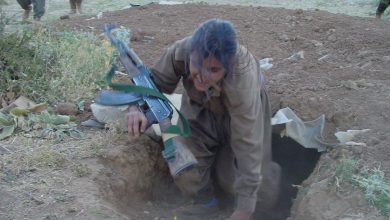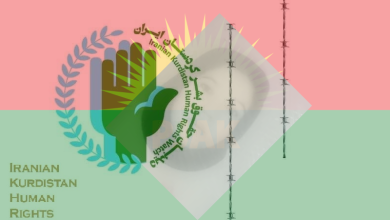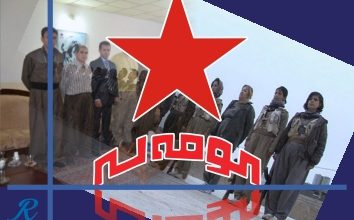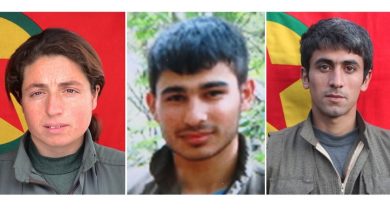Girls who promise to marry and illegitimate relationships for recruitment by terrorist groups
A report on the losses and threats by the PJAK group in the border areas of Western Iran (part two and final)
Following reports on abducted children in Iranian border villages, the reporter of Iranian Kurdistan Human Rights Watch (IKHRW) has talked with Mr. Enayati, the father of Zanyar Enayati, who was 16 years old at the time of being abducted by PJAK. Mr. Enayati retells how PJAK views the 13-, 17-, and 18-year-olds in the villages as targets for recruitment.
He added that the agents of this group communicate with the underage children at an appropriate time and, incidentally, they have enough skill to deceive the children. PJAK agents deceive by making promises to the children of the village for a good and comfortable life, while provoking these children to learn how to use weapons. The same issues lead these children to be easily deceived and to make an emotional decision.
Mr. Enayati states that if PJAK had an acceptable reason for recruitment, why cann’t it recruit the old people but concentrates on the underages. He believes that the PJAK memebrs are aware of the people’s being against the group and that is why they continue their recruitments only by deceiving the uninformed children.
As Mr. Enayati believes, small groups of friends of the same age are better targets for PJAK, because by deceiving one or two of them, the other children can be easily abducted and sent to Qandil for no return trip.
Mr. Enayati believes that recruitment of these children by PJAK is the result of brainwashing, indoctrination and deception, which ultimately leads to an unkown future for the children. He says that “despite the bad economic condition, I sent my son Zanyar to school and he was a good student”. Mr. Enayati continues as saying “if PJAK had not kidnapped Zanyar, he would have had a good future by his education, but he has to live like animals in the most difficult conditions in the mountains.” Mr. Enayati says he has to wait for the news of Zanyar’s death every day, or even perhaps Zanyar has died so far, and like many other members who have been killed and whose families have never been informed, he will never know anything on the fate of his son.
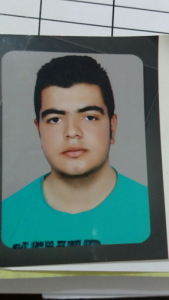
Zanyar Enayati
Zanyar’s father says: “My life has been greatly affected by Zanyar’s leaving, my wife has lost all her peace in the life.” Mr. Enayati cries when he remembers Zanyar’s laughter, his clothes at home, and the bright future he envisioned for his only son. He believes that the secret presence of these armed groups in the border area and their entring into the country has destabilized the security of the region, and this has prevented investment and ultimately led to unemployment and economic damage to the local people.
Although Mr. Enayati still hopes to hear Zanyar escape one day, the possibility of his being targeted while escaping also greatly frightens him. He says that in order to prevent the escape of its members, PJAK’s treatment against those who are try to escape is violent, the group acts so that the fear of being killed prevents others from fleeing.
Zanyar’s father says that those who have managed to escape so far have not been able to return to normal life for years after escaping, while the depression and psychological damage of being in Qandil for years remain with these children sometimes for the rest of their lives.
Promises for marriage and illegitimate relationships for joining PJAK
Sirwan Kasraei is one of the four children, including Zanyar, who joined PJAK. He was lucky have managed to escape. He was interviewed by the IKHRW on his bitter experience.
Sirwan retells the night when he and three of his friends were sitting around the village and talking about their future, jobs and work. He says to have been the oldest of them, seventeen years old. The four were talking warmly as four gunmen, including two men and two girls, appeared.
Sirwan says that “at first we were scared, but they sat next to us and greeted warmly. They soon began to talk about a free Kurdistan and the struggle for the freedom and liberation of the Kurdish people.” Although, according to Sirvan, these conversations had no meaning for the four children, PJAK members had other ways to deceive the four children. Sirwan says “one of the girls took one of my comrades with her to a corner and they talked for a while, then when they returned, my friend was happy and said that he was going with them. Sirwan continued “I was also against joining them, but one of the girls spoke to me privately and promised a good and comfortable life, marriage, and deceived and satisfied me in this way”. He says that these girls even offer sex to recruit the children, which is also a big lie and the only the last way to deceive them”.
Sirwan says “when all four of us went to Qandil, as the first move, the same girl shot at us then we suddenly realized all the promises were false. Sirwan explains that he had to live in the worst health conditions, there was no fun and calm, and all the children who came from Turkey, Iraq and Iran cried until late at night. “I became a driver because I knew how to drive, and I was the only one who did not cry at night, because I was determined to run away and I had a sense of confidence to succeed,” he said.
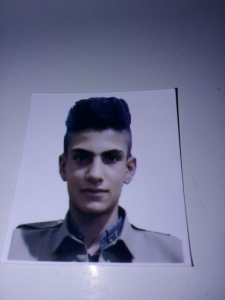
Sirwan Kasraei
When Sirwan crosses the Iranian border by car for a mission, he was accompanied by another member of the PJAK.
He puts his weapon in the car and, as he says, runs away to freedom. He says “although when I was in the Qandil Mountains I was concerned with being imprisoned and executed upon my return, nostalgia for my family and Qandil’s difficult circumstances led me to return to Iran”. Sirwan continued saying as “after my return, I did not face even a single negative action from the Iranian military and security forces. I went home easily.” He is one of those who wants to explain his destiny to all Kurdish children and adolescents in order to prevent others from being deceived.
In addition to the need of informing families for education and protecting their children, what is happening in the border villages of the western Iran, the need for more decisive action to prevent from the movement of terrorists and the insecure consequences of this movement is mandatory.


